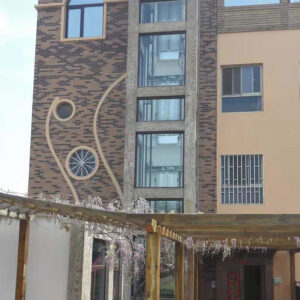Tabla de contenido
PalancaRenovación de ascensores
Renovación de ascensor is a crucial aspect of building maintenance that often gets overlooked until it’s too late. Whether you manage a high-rise office, a residential complex, or a retail space, keeping your elevators in top condition can significantly impact tenant satisfaction, accessibility, and energy efficiency. This article will outline effective strategies for planning a successful elevator renovation and highlight its advantages and applications.
Before diving into the details of your elevator renovation project, it is essential to assess the current state of your elevators. An inspection should cover all functional aspects, including the mechanical parts, control systems, and car interiors. For instance, if your elevators experience frequent breakdowns or long waiting times, these are clear indicators that a renovation is necessary. Collect data about elevator usage patterns and tenant feedback to understand specific issues that need addressing. For example, if residents frequently complain about the outdated look of the elevator interiors, the need for a cosmetic upgrade becomes apparent.
One of the critical advantages of elevator renovation is improved safety standards. Over time, elevators can wear out, making them less safe for occupants. A well-planned elevator renovation can upgrade safety features such as emergency communication systems, door sensors, and even seismic protection in earthquake-prone areas. Imagine a resident pressing the elevator button only to find that vital safety features are outdated. A renovation ensures peace of mind, knowing that current safety codes are being met.
Moreover, energy efficiency is another compelling reason to consider an elevator renovation. Newer elevator systems are designed to consume less energy, leading to lower operating costs. For instance, modern systems employ regenerative drives that recover energy when the elevator descends. Case studies show that buildings that have undertaken elevator renovations see energy savings of up to 30%. If your building has older, energy-hungry elevators, an upgrade could translate to significant savings on utility bills while also reducing the carbon footprint of the building.
When planning for an elevator renovation, involve a range of stakeholders early in the process. This includes property managers, maintenance staff, and tenants. By inviting feedback, you will not only gather diverse perspectives but also foster a sense of community ownership. For example, if tenants express a desire for mirrors or a more vibrant color scheme, these elements can be incorporated into the renovation plans. Additionally, consider bringing in a professional consultant who specializes in elevator systems to help guide the project. Their expertise can help identify challenges early, ranging from financial constraints to space configurations.
Budgeting is a crucial component of any elevator renovation. Allocate funds not just for the renovation itself but also for ongoing maintenance and potential future upgrades. Prioritize essential upgrades that ensure safety and efficiency before deciding on luxury finishes. For instance, spending extra on a high-quality control system may be more impactful than upgrading the flooring material. A well-balanced budget leads to a smoother renovation process and reduces the risk of project delays.
Furthermore, communication is essential throughout the renovation process. Make sure tenants are kept informed about timelines, construction impacts, and potential inconveniences. Transparency helps manage expectations and can significantly reduce frustration during the renovation period. Use signage in elevators, newsletters, or building meetings to relay updates. Providing a clear timeline for when work will commence and conclude can help alleviate concerns, as tenants will know what to expect.
In conclusion, elevator renovation plays a vital role in maintaining the integrity and efficiency of your building’s systems. By understanding the process and focusing on safety, energy efficiency, and community involvement, building managers can execute a successful renovation project. As urban spaces continue to evolve, a robust elevator renovation not only enhances property value but also elevates the overall tenant experience. Embracing these changes is not just an investment in physical infrastructure; it’s a commitment to community well-being. Consider starting your elevator renovation today to ensure your building remains both functional and inviting for years to come.


